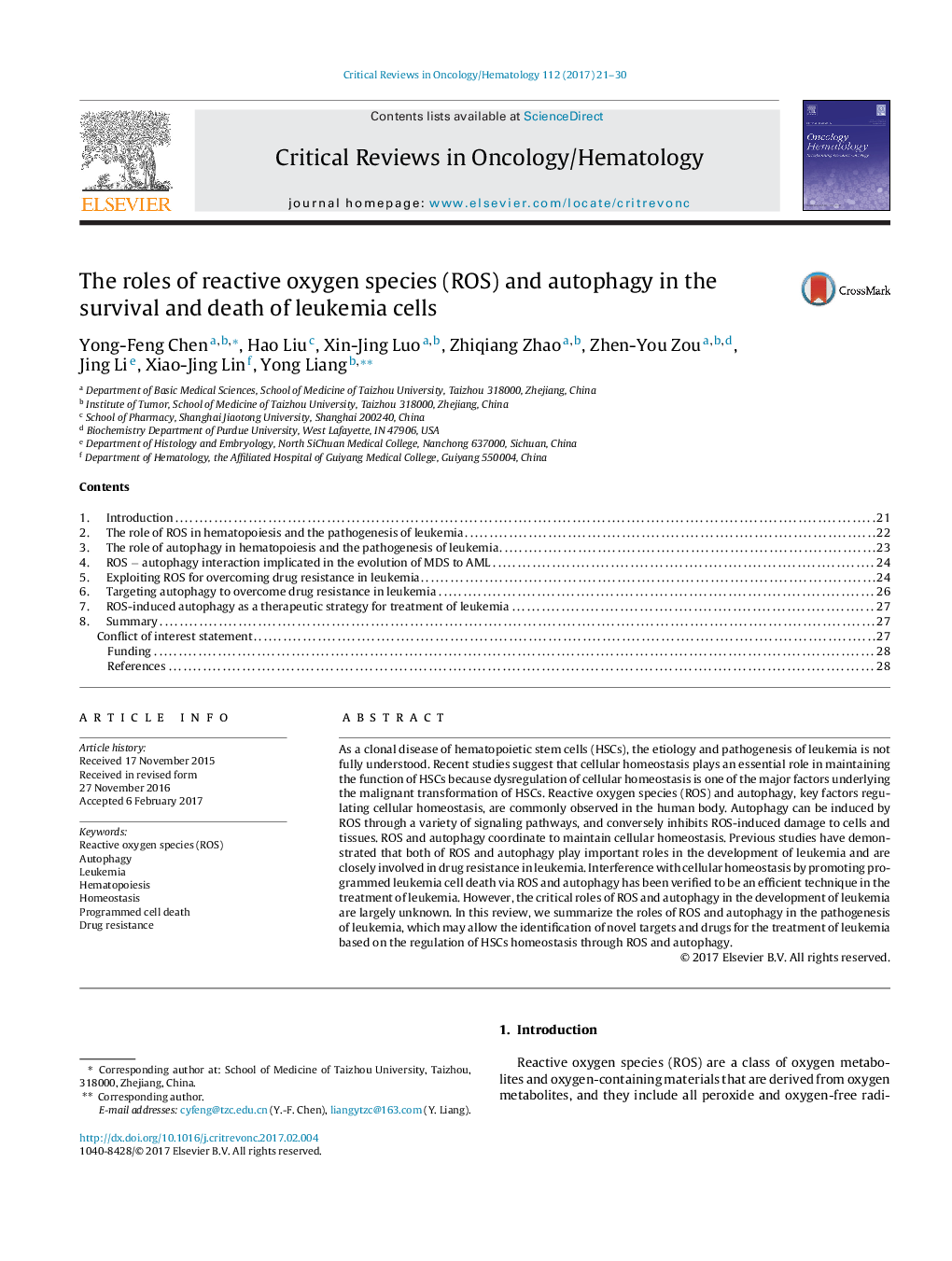| کد مقاله | کد نشریه | سال انتشار | مقاله انگلیسی | نسخه تمام متن |
|---|---|---|---|---|
| 5664133 | 1590705 | 2017 | 10 صفحه PDF | دانلود رایگان |

As a clonal disease of hematopoietic stem cells (HSCs), the etiology and pathogenesis of leukemia is not fully understood. Recent studies suggest that cellular homeostasis plays an essential role in maintaining the function of HSCs because dysregulation of cellular homeostasis is one of the major factors underlying the malignant transformation of HSCs. Reactive oxygen species (ROS) and autophagy, key factors regulating cellular homeostasis, are commonly observed in the human body. Autophagy can be induced by ROS through a variety of signaling pathways, and conversely inhibits ROS-induced damage to cells and tissues. ROS and autophagy coordinate to maintain cellular homeostasis. Previous studies have demonstrated that both of ROS and autophagy play important roles in the development of leukemia and are closely involved in drug resistance in leukemia. Interference with cellular homeostasis by promoting programmed leukemia cell death via ROS and autophagy has been verified to be an efficient technique in the treatment of leukemia. However, the critical roles of ROS and autophagy in the development of leukemia are largely unknown. In this review, we summarize the roles of ROS and autophagy in the pathogenesis of leukemia, which may allow the identification of novel targets and drugs for the treatment of leukemia based on the regulation of HSCs homeostasis through ROS and autophagy.
Journal: Critical Reviews in Oncology/Hematology - Volume 112, April 2017, Pages 21-30